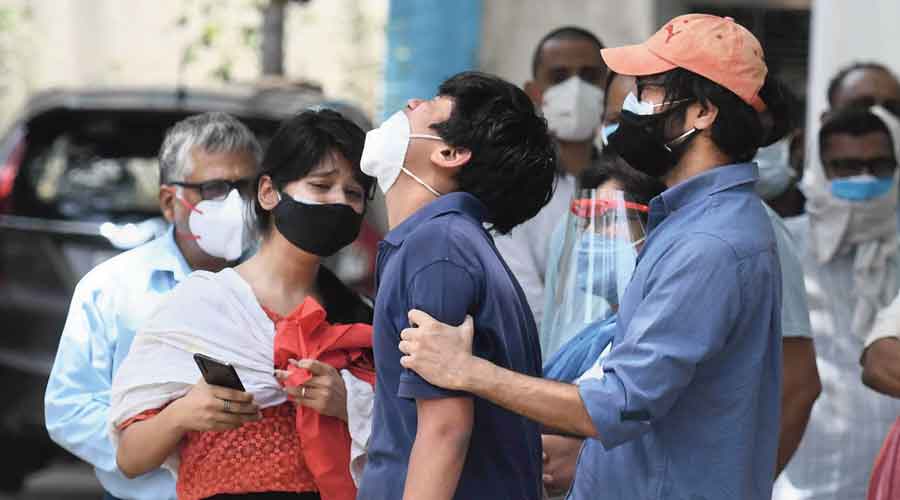
Union Health ministry releases guidelines for Covid management in rural areas
Some health experts say this was overdue but pose an implementation challenge and carry the risk of an overemphasis on medicines

The standard operating protocols for containment and management of Covid-19 for “peri-urban, rural and tribal areas” outline processes for surveillance, detection and treatment — at home for mild cases and in a three-tiered structure for moderate or severe cases.
While the Covid-19 epidemic arrived and predominantly grew in India’s urban areas, the ministry said on Sunday “a gradual ingress is now being seen” in peri-urban, rural and tribal areas. Some 490 districts across India on Sunday had a test positivity rate — the proportion found positive among those tested — of 10 per cent or higher, implying large epidemics.
The guidelines recommend that “every village” should have active surveillance for influenza-like illness or severe acute respiratory infections with the help of local accredited social health activists and village health sanitation and nutrition committees.
They require community health officers and auxiliary nurse-midwives to be trained to perform rapid antigen tests to detect Covid-19 cases and triage — screen — patients to determine who could be treated at home in accordance with standard treatment guidelines.
Each Covid-19 household would get a “home isolation kit” with paracetamol, ivermectin, multivitamins and provisions for periodic measurements of patients’ oxygen level and fever.
The guidelines recommend a three-tier structure — a Covid-care centre for mild cases, primary health centres or community health centres or sub-district hospitals for moderate cases and district hospitals or private hospitals to manage severe cases with ambulances available for the rapid transport of patients.
“The architecture they’ve proposed is very good — they know what’s required,” said T. Sundararaman, a community medicine specialist. “We should have had this document earlier, but better late than never. But implementation will pose a severe challenge.”
Sundararaman said he was worried that during the implementation, the emphasis on home care would go into the medications because it is far easier to distribute paracetamol or vitamins than to provide the constant monitoring and quick transport of patients to hospitals.
Doctors familiar with rural healthcare infrastructure said the human resources and the skills to implement the proposed guidelines were not available in many places.
“We absolutely need to shore up our rural healthcare resources and Covid-19 is a good reason to do this,” said Yogesh Jain, a senior physician and member of the Jan Swasthya Sahyog, a non-government health organisation providing healthcare services in rural Chhattisgarh.
“But at this moment, our focus should be to save lives,” Jain said. Efforts to decentralise Covid-19 care across the rural landscape by asking all primary health centres or community health centres to manage moderate patients, he said, will face staff and resource challenges.
Over 63 per cent of the approved posts of specialist doctors in India’s community health centres were vacant on March 31, 2020, according to the health ministry’s rural health statistics. The shortfall from the actual requirement was 76 per cent.
For now, Jain said, it might be more useful to concentrate staff, resources and skills in district hospitals or hospitals with stronger infrastructure and ensure that every patient who requires hospital care is moved with the help of dashboards and ambulance networks.
“Healthcare in rural India is like oases in a desert. You can’t plant trees overnight in the desert.”

0 Response to " Union Health ministry releases guidelines for Covid management in rural areas"
Post a Comment
Disclaimer Note:
The views expressed in the articles published here are solely those of the author and do not necessarily reflect the official policy, position, or perspective of Kalimpong News or KalimNews. Kalimpong News and KalimNews disclaim all liability for the published or posted articles, news, and information and assume no responsibility for the accuracy or validity of the content.
Kalimpong News is a non-profit online news platform managed by KalimNews and operated under the Kalimpong Press Club.
Comment Policy:
We encourage respectful and constructive discussions. Please ensure decency while commenting and register with your email ID to participate.
Note: only a member of this blog may post a comment.